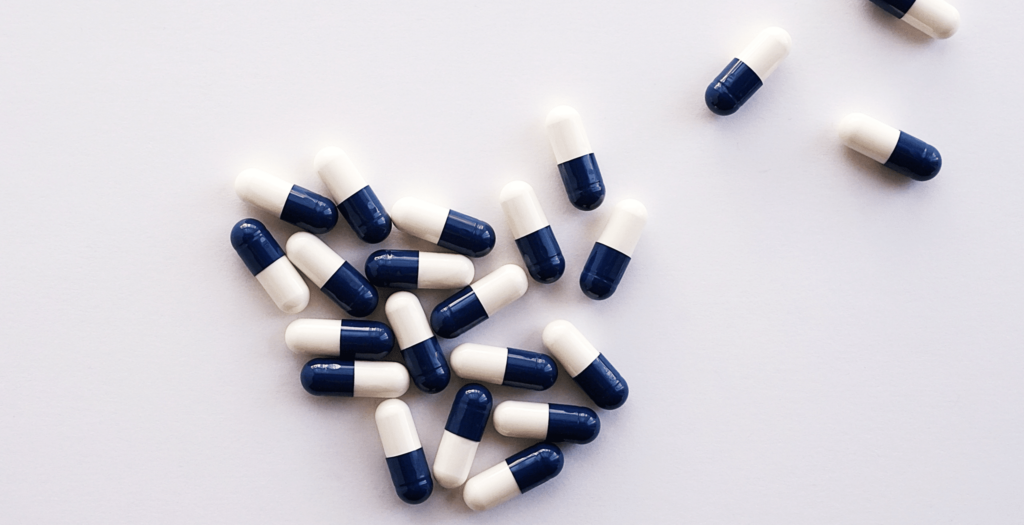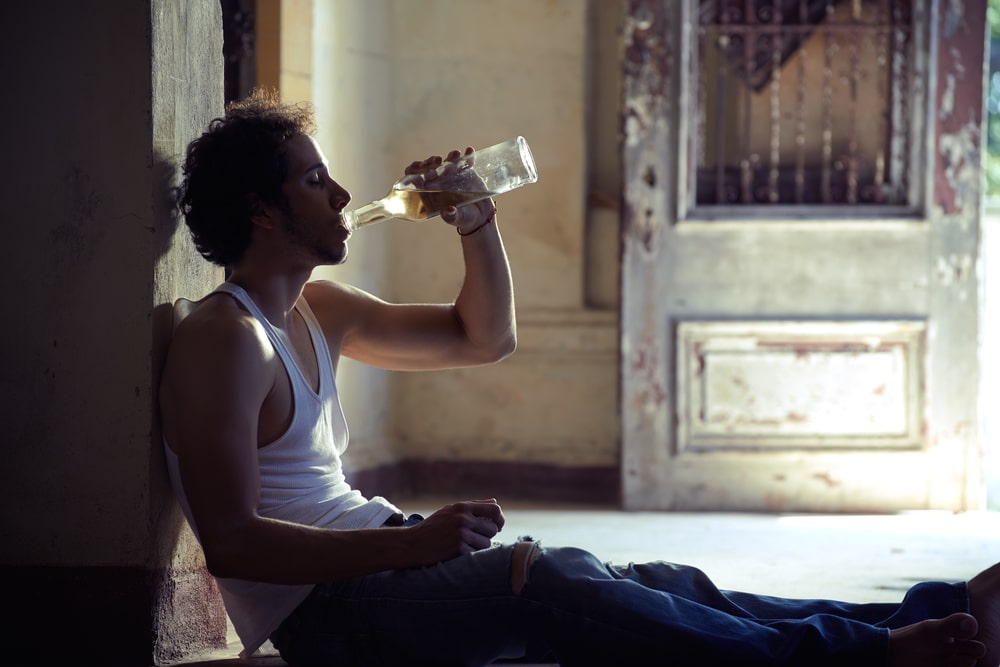While the opioid crisis has long overshadowed the topic of substance abuse, the misuse of ADHD medications, such as Vyvanse, has become equally problematic. This is especially true for those using Vyvanse and alcohol at the same time.
Mixing prescription drugs and alcohol isn’t unheard of. However, it always has been and continues to be extremely dangerous. Upon prescribing any type of ADHD medication, doctors typically advise against drinking—and for a good reason. Read on to learn more about the most dangerous health risks of drinking on Vyvanse.
An Intro to Vyvanse
Vyvanse (lisdexamfetamine dimesylate) is a brand-name medication that treats attention deficit hyperactivity disorder (ADHD). It also treats moderate to severe eating disorders, such as binge eating disorder (B.E.D.)
Doctors can prescribe Vyvanse to patients as young as six years old with ADHD. The medication itself is primarily a stimulant that works to restore the balance of certain neurotransmitters in the brain. It helps with fidgeting, focus, and attention, and it can reduce the number of binge eating days in adults suffering from B.E.D. However, since the drug falls within the amphetamine family, it has the potential to cause symptoms of addiction and withdrawal.
This also makes it a controlled substance, which means it’s illegal without a prescription. Vyvanse should never be taken recreationally for weight loss, and patients certainly should not be drinking on Vyvanse.
Potential Side Effects
Medications, such as Vyvanse, affect individuals differently. The most common side effects of Vyvanse by itself include:
- Anxiety
- Insomnia or trouble sleeping
- A decrease in appetite
- Dry mouth
- Irritability and mood swings
The less common but more serious side effects of taking Vyvanse include:
- Newer or worsening behavioral problems
- Newer or worsening thought patterns
- Hallucinations
- Delusions
- Paranoia
- Worsening symptoms of bipolar illness
- Increased blood pressure and heart rate
- Issues with blood circulation, especially blood flow to fingers and toes
- Stroke, heart attack, or death (sudden)
A doctor won’t typically prescribe Vyvanse if a patient is in poor health or has been diagnosed with severe mental illness cases due to the above side effects.

The Risks of Mixing Vyvanse and Alcohol
Mixing prescription drugs and alcohol is never a good idea. It’s also important to note that liquor, beer, and wine aren’t the only substances that contain alcohol. You can find alcohol in a variety of products, including cough syrup, cold and flu medications, mouthwash, etc.
Make sure that you read ingredient labels before taking other medications or using products meant for internal use. The same goes for certain desserts that contain distilled spirits for preservation and flavor. Alcohol is often found listed under the term ethanol (ethyl alcohol), which is alcohol.
Of course, eating a piece of dessert or using mouthwash isn’t all that risky. The real issue is mixing ADHD medication and alcohol. If you or someone you love is drinking on Vyvanse, these are the five potential risks:
1. Alcohol Poisoning
Vyvanse is considered an upper since it stimulates the central nervous system (CNS). Alcohol is a known depressant or a downer. When you drink, your body reaches a certain point of relaxation or immobility, which lets you know that it’s time to stop.
However, when you mix ADHD medication and drinking, it takes much longer for your body to feel the depression. In other words, it takes nearly twice as long to get drunk. That means you’re consuming double the amount of alcohol you would normally drink, which could lead to alcohol poisoning or alcohol-related injuries such as falling.
2. Heart Issues
Studies show that one of the most significant risks of mixing an amphetamine with alcohol is that it raises your blood pressure and heart activity. Vyvanse on its own can increase your heart rate, but when you pour alcohol on top of it, those side effects become even greater.
It’s especially risky for those with poor health. As mentioned above, under the more severe side effects, taking the stimulant can cause sudden stroke, heart attack, and even death. Those potential risks compounded with alcohol equate to a ticking time bomb.
3. Increase in Risk-Taking Behaviors
Since Vyvanse minimizes the “drunk effects,” it can cause individuals to engage in more risk-taking behaviors. That would include:
- Driving under the influence
- Getting into a vehicular accident
- Getting into a physical altercation
- Having a regrettable sexual experience
- Becoming a victim of sexual assault or crime
- Becoming a perpetrator of sexual assault or crime
- Inflicting self-harm on themselves
All of the above and worse can happen solely because the individual mixing their Vyvanse and alcohol doesn’t realize that they’re impaired. Therefore, they become a danger to themselves and others around them.
4. Increased Chances of Psychosis
Especially for individuals who have a mental illness such as bipolar disorder or schizophrenia, mixing Vyvance and alcohol can cause or exacerbate the signs and symptoms of psychosis. That includes paranoia, hallucinations (seeing things that aren’t there), and delusions (believing things that aren’t true).
5. Potential for Addiction
Both alcohol and ADHD medications are potentially addictive substances. Especially those who are suffering from ADHD are already at a higher risk for developing substance abuse problems. That risk is compounded when prescription drugs and alcohol are mixed.
The combination of a stimulant and a depressant can lead to polysubstance abuse. Polysubstance abuse can cause more severe mental health issues as well as poor physical health—on top of addiction. The detox and rehabilitation process for polysubstance abuse is also much more complicated.
Why You Shouldn’t Mix Alcohol and Vyvanse

When drinking on Vyvanse, there is a risk of addiction in addition to heart problems, alcohol poisoning, and overdose. Both lisdexamfetamine and alcohol are highly addictive substances that can lead to a substance use disorder if abused. Taking higher doses of prescription drugs like Vyvanse than prescribed, using them without a prescription, and combining them with other substances like alcohol constitute forms of drug abuse. Furthermore, heavy alcohol use, defined as consuming more than 4 drinks a day for men and more than 3 drinks a day for women, increases the likelihood of developing an alcohol or Vyvanse addiction.
Both substances can also lower inhibitions and impair judgment when consumed in high doses or combined, potentially leading to risky behaviors such as driving while intoxicated, violence, criminal offenses, or unsafe sexual interactions. Mixing Vyvanse and alcohol can result in an overdose as alcohol, a depressant, counteracts Vyvanse’s effects, overwhelming the central nervous system with opposing commands. This may lead users to disregard caution and take more doses of Vyvanse, increasing the risk of overdose.
Vyvanse Mixed With Alcohol Is A No Go
Vyvanse and alcohol don’t mix. Period. Taking stimulants or drinking alcohol by themselves already comes with its own set of risks. Combining the two is just asking for trouble.
Of course, some people can’t help themselves. If you or something you love is suffering from polysubstance abuse or is heading down the road to addiction, reach out to us. We’re ready to listen and offer solutions whenever you’re ready to talk.

 Matthew Beck B.A, M.A, LMFT
Matthew Beck B.A, M.A, LMFT 


